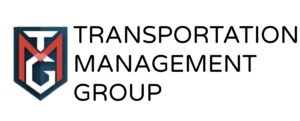Transportation Management Group
How to Build a Reliable Carrier Network: A Guide for Brokers
Home / Blog
How to Build a Reliable Carrier Network: A Guide for Brokers
- April 29, 2025

In the fast-paced world of logistics, the strength of your carrier network can make or break your business. Whether you’re a freight broker, dispatcher, or logistics provider, your ability to move freight efficiently and reliably hinges on having dependable carriers. Building a reliable carrier network isn’t just about filling loads; it’s about creating long-term partnerships that help you deliver consistent service, satisfy shippers, and grow your business sustainably.
Why a Reliable Carrier Network Matters
A well-developed carrier network gives you a competitive edge in a tight freight market. When you know exactly who to call for a last-minute load or who can reliably cover a specific lane, you eliminate guesswork and reduce service failures. Reliable carriers reduce the need for load board dependency and help you build deeper relationships with your shippers.
This reliability not only leads to better profit margins but also improves your business’s reputation across the industry. As capacity tightens, brokers who can rely on a proven carrier pool are better equipped to maintain pricing power and keep customers happy. According to a FreightWaves analysis, companies with high carrier retention outperform in service reliability and scalability.
Step 1: Define Your Freight Needs and Lanes
Before you begin recruiting carriers, it’s essential to fully understand your freight profile. This includes the type of equipment required, the average load weight, the frequency of loads, and any specialized requirements like hazmat or temperature control. Knowing these details will help you target the right carriers who already specialize in similar freight.
Additionally, identifying your core shipping lanes allows you to focus your network-building efforts where they’ll have the most impact. Start by analyzing your existing customer base and use historical data to highlight high-volume routes. Free tools like the Bureau of Transportation Statistics’ Freight Analysis Framework can help you benchmark volume trends and make data-driven decisions.
Step 2: Source Carriers Strategically
Once you’ve defined your needs, the next step is sourcing. While load boards like DAT are effective for casting a wide net, they should be part of a broader strategy. Smart sourcing also includes reaching out to regional carriers, networking through industry forums, and leveraging tools like Carrier411 for detailed insights.
Don’t underestimate the value of in-person networking. Industry events like the Mid-America Trucking Show or regional transportation conferences offer great opportunities to meet vetted carriers who may not advertise online. A blend of digital and face-to-face sourcing builds a more diverse, resilient carrier pool.
Step 3: Vet Every Carrier Thoroughly
Thorough vetting protects your business, your clients, and your reputation. Start by reviewing each carrier’s DOT/MC authority, insurance certificates, and safety history on FMCSA’s SAFER system. A clean safety record, proper endorsements, and a history of compliance are minimum requirements.
Also, verify insurance coverage beyond just liability—check cargo insurance amounts and expiration dates. Look for signs of reliability like company longevity, positive reviews, and referrals from trusted brokers or dispatchers. For additional red flag detection, use resources like the Federal Trade Commission’s Scams & Fraud alerts to ensure you aren’t falling into a double-brokering trap.
Step 4: Standardize Your Carrier Onboarding Process
Having a standardized onboarding process helps set expectations and ensures every carrier starts with the same understanding. A comprehensive onboarding packet should include a W-9, certificate of insurance, operating authority, and clearly written service-level expectations. Set consistent policies for communication protocols, appointment handling, and issue escalation.
It’s also a good idea to include a FAQ or welcome guide that answers common questions and helps carriers integrate smoothly into your workflow. Digitizing this process using platforms like MyCarrierPackets can save time and ensure consistency. Clear and professional onboarding increases the chances of long-term partnerships and reduces friction from the start.
Step 5: Use a TMS to Manage Carrier Relationships
As your network grows, manual management becomes inefficient. A Transportation Management System (TMS) allows you to centralize carrier data, performance history, preferred lanes, and compliance documents. This kind of visibility makes it easier to assign loads efficiently and identify issues before they become service failures.
You can also track metrics such as on-time pickup and delivery, claims rates, and customer satisfaction scores. Using this data, you can identify your top-performing carriers and offer them priority access to freight. Platforms like AscendTMS or Carrier TMS from PCS Software offer flexible and scalable solutions for small to midsize brokerages.
Step 6: Build Loyalty Through Consistency
Carrier relationships are just like customer relationships—they thrive on consistency, transparency, and fairness. Offering steady loads, honest communication, and timely payment shows carriers that you value their work. When you treat carriers like partners instead of just capacity providers, you’ll be rewarded with higher service quality and faster response times.
A reliable carrier is more likely to go the extra mile for a broker who communicates well and offers financial stability. Consider offering perks like early payment through freight factoring, especially through a partner like TMG, which offers same-day funding. For brokers, quick carrier payments can reduce turnover and increase load coverage rates dramatically—benefiting both parties in the long run.
Step 7: Continuously Evaluate and Improve
Even a strong network needs regular maintenance. Set up quarterly or monthly reviews of carrier performance using internal KPIs and customer feedback. This lets you reward top performers while also identifying those who may no longer meet your evolving standards.
Be willing to prune underperforming carriers, even if they were once dependable. Your reputation depends on maintaining a high level of service, and this starts with the people moving your freight. For guidance on building sustainable business processes, the Harvard Business Review on Operations Management offers excellent thought leadership you can adapt to transportation.
Final Thoughts: Strong Networks Create Strong Results
There’s no shortcut to building a reliable carrier network—it takes effort, organization, and a clear process. But once your foundation is set, everything else becomes easier: faster coverage, fewer service failures, happier shippers, and better margins. When you combine strategic sourcing with strong relationship management and smart tech, you set your brokerage up for long-term success.
At TMG, we specialize in helping freight brokers and carriers build more efficient, profitable operations through flexible freight factoring, same-day funding, and expert support. If you’re ready to scale your network and improve your cash flow, we’d love to help you move forward—carrier by carrier, load by load.
